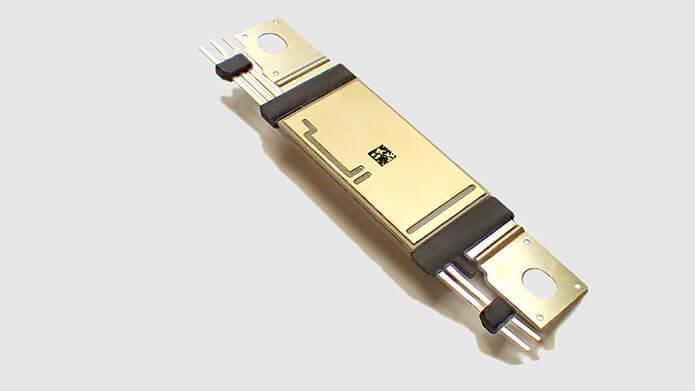Silicon carbide-based inverters are known for providing higher power density than traditional inverters while having less need for cooling and lower overall system costs. Their commercial maturity, however, is still far from being achieved as defects at the interface between the silicon carbide and the insulating silicon dioxide material still represent a big hurdle to transfer the technology to mass production. To date, only a few inverter makers have manufactured silicon carbide products for the PV industry and, in most cases, the devices are built as prototypes or in pilot projects.
Over recent weeks, two U.S. companies have announced new, interesting developments for their respective silicon carbide inverter technologies – U.S. multinational automotive supplier BorgWarner and U.S. semiconductor company Qorvo.
BorgWarner announced it was awarded $4.97 million by the U.S. Department of Energy (DOE) Award to further develop its Scalable Ultra Power-dense Extended Range (SUPER) inverter for electric vehicles. “With an intense focus on electrification, and as a leading systems integrator and high-voltage inverter supplier, we are proud to be selected by the DOE to develop a next-generation inverter that will accelerate innovation in electric drive systems and propel the performance and capabilities of electric vehicles,” said the company's president, Stefan Demmerle.
The capacity of the company's 800 V Viper silicon carbide based inverter is expected to be scaled up from 100 to 300 kW during the 39-month project, which also sees the participation of semiconductor supplier Infineon Technologies Americas Corp, high-energy-density capacitors manufacturer PolyCharge America Inc, the National Renewable Energy Laboratory (NREL), and public, ‘land-grant' research university Virginia Tech.
“During the first year of the project, which will begin in October, the group will create the concept for the entire silicon carbide (SiC)-based inverter system,” BorgWarner explained. “In the second year, the team will make all critical components that make up the inverter, including the power module and capacitor, and finalize the inverter’s design.” In the project's final stage, all inverter components will be validated and commercial production will be implemented.
Popular content
In a separate development, Qorvo announced it has acquired New Jersey-based silicon carbide semiconductor provider United Silicon Carbide (UnitedSiC) for an undisclosed sum.
“United Silicon Carbide's product portfolio now spans more than 80 SiC field-effect transistors (FETs), junction-gate field-effect transistors (JFETs) and Schottky diode devices,” Qorvo said in a statement. “Based on a unique cascode configuration, the recently announced Generation 4 SiC FETs are specified at an industry-leading 750V at 5.9 milliohm RDS(on), enabling new levels of SiC efficiency and performance critical for EV chargers, DC-DC converters and traction drives, as well as telecom/server power supplies, variable speed motor drives and solar photovoltaic (PV) inverters.”
Qorvo's president, Philip Chesley, said the acquisition of United Silicon Carbide will expand the company's market opportunities for power solutions covering power conversion, motion control and circuit protection applications.
This content is protected by copyright and may not be reused. If you want to cooperate with us and would like to reuse some of our content, please contact: editors@pv-magazine.com.



4 comments
By submitting this form you agree to pv magazine using your data for the purposes of publishing your comment.
Your personal data will only be disclosed or otherwise transmitted to third parties for the purposes of spam filtering or if this is necessary for technical maintenance of the website. Any other transfer to third parties will not take place unless this is justified on the basis of applicable data protection regulations or if pv magazine is legally obliged to do so.
You may revoke this consent at any time with effect for the future, in which case your personal data will be deleted immediately. Otherwise, your data will be deleted if pv magazine has processed your request or the purpose of data storage is fulfilled.
Further information on data privacy can be found in our Data Protection Policy.